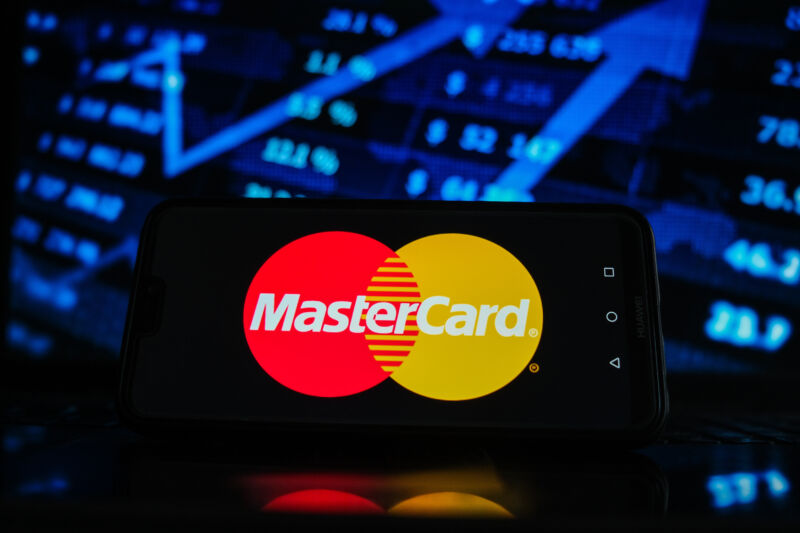
Enlarge (credit: Omar Marques/SOPA Images/LightRocket via Getty Images)
Mastercard said on Wednesday that it is planning to support cryptocurrencies natively on its network. If this actually happens, it will be a big deal, helping to further legitimize virtual currencies and dramatically expand the market for their use.
However, Mastercard says that it's only going to support cryptocurrencies that meet a number of requirements—including stability, privacy, and compliance with money laundering laws. The problem is that few cryptocurrencies meet Mastercard's criteria. Indeed, it's not clear if any of them do.
It’s hard to be both decentralized and regulated
Bitcoin, the first cryptocurrency, was designed to disrupt the power of governments and conventional financial institutions. The bitcoin network has a decentralized architecture that puts it beyond the reach of any government. Without government backing, bitcoin's price is highly volatile. Users have no recourse against funds lost to hacking or fraud. The bitcoin network doesn't comply with anti-money laundering laws that conventional financial networks must follow—though some bitcoin intermediaries do.
No comments:
Post a Comment